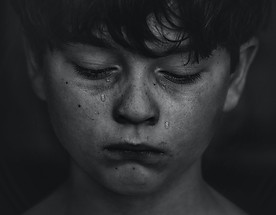
Tips for young people
Schizophrenia
In schizophrenia, your perception of reality differs from how other people perceive it. Learn more about it and what to do if you believe you are being affected by it.
What is schizophrenia?
A psychotic symptom of schizophrenia is when your perception of reality differs from how other people perceive it. You may have had "psychotic" symptoms associated with schizophrenia.
You might, for instance, observe, hear, or hold beliefs that are untrue in the eyes of others. In addition, you can experience confusion, depression, or withdrawal.
Although schizophrenia is a serious illness, it is treatable. It typically manifests between the ages of 15 and 35. The cause is unknown, although you're more likely to get it if one of your parents does, or if you've had brain injury, problems with drugs or alcohol, or troubles at home.
Schizophrenia does not imply a "split personality" or a violent personality. You are not alone if you suspect that you may have schizophrenia. Although it can be frightening, assistance is available.

Symptoms
The following are typical signs of schizophrenia:
- You have hallucinations when you perceive unreal sounds, smells, and sensations.
delusions, in which you "just know" things that other people find to be unreal, such as paranoid convictions that a conspiracy is being hatched against you
- confusion in thinking and trouble focusing
- a sensation of being under the influence of something other than yourself
- not feeling well enough to do routine things like wash, dress, or see friends.
Given that the illness makes it difficult for you to constantly tell what is real, other people may notice symptoms before you do.
Even if you have one or more of these signs, it doesn't necessarily mean you have schizophrenia. You should consult your doctor to receive a complete diagnosis.
Treatment
You will usually be offered antipsychotic or neuroleptic medication. These can reduce symptoms and stop them coming back in the future.
You might also be offered cognitive behavioural therapy (CBT), other types of therapy or support through family intervention.

Get help now
Childline
If you’re under 19 you can confidentially call, chat online or email about any problem big or small.
Sign up for a free Childline locker (real name or email address not needed) to use their free 1-2-1 counsellor chat and email support service.
Can provide a BSL interpreter if you are deaf or hearing-impaired.
Hosts online message boards where you can share your experiences, have fun and get support from other young people in similar situations.
Opening times:
24/7
0800 11 11
Samaritans
Whatever you're going through, you can contact the Samaritans for support. N.B. This is a listening service and does not offer advice or intervention.
Opening times:
24/7
116123
More information & support

Depression

Anxiety
Suicidal thoughts

Self harm

#ENDTOTOXICITY
This is the story of an 11-year-old child who gave his mother the 'gift of suicide' on her birthday. The main difference between this incident and many others involving emotional abuse is that not many young people go on to commit suicide on their mother's birthday. Few individuals are aware of the fact that a child's experiences shape their mental stability and stick with them. A child's growth may be affected if they do not receive the basic emotional needs of security and affection from their caregiver.
Words are important because they remain in people's minds and might boost their self-esteem. A child who is regularly taught to feel inadequate and told unfavourable things about themselves may grow up in the same manner. The young boy was convinced that the only way to solve the problem was for him to cease to exist, which is why this narrative may be painful. Schools must teach kids as young as 5 about love, security, and what mental health is. What to do when they are depressed or don't feel loved or cared for.






